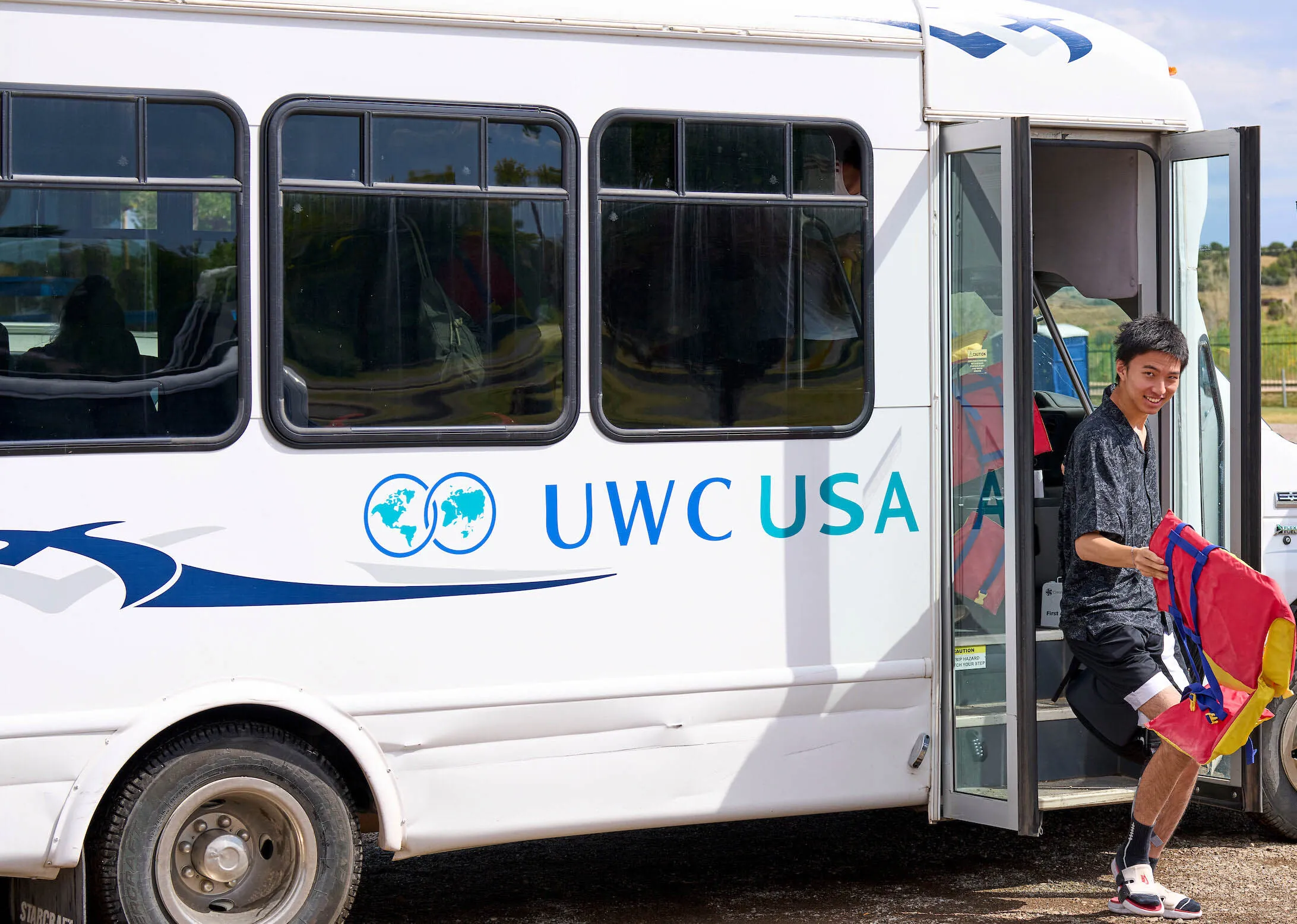Engaging differences with courage and curiosity to bridge divides.
CEC is based on the premise that understanding and tranforming conflict is a critical skill for the 21st century. The practice of constructively engaging in conflict is interwoven through all the major aspects of life on campus.
The first-year CEC retreat, ongoing CEC workshops and the Conflict Transformation Team (CTT), a student group of Residential Advisors, prepare students to defuse communal and interpersonal conflicts.
Arts and Culture, Community Engagement, Wilderness and Campus Service activities, along with weeklong learning expeditions, promote dialogue and collaboration across differences.
Learning expeditions spotlight the four global challenges that underlie major conflicts in the 21st century. Weeklong trips to the border highlight these challenges in depth.

The two-year CEC curriculum transforms conflict into an opportunity for growth, collaboration, and connection—preparing students to lead in a world that needs deep dialogue more than surface agreement. As they journey through the CEC program students develop practical communication, thinking, and social skills in the service of meeting global challenges related to peace and sustainability.
Our stories help us understand ourselves more fully, communicate our values to others, and extend our learning. Our stories shape our reality, individually and collectively. The self-awareness gained by self-reflection is the foundation of authentic, respectful engagement across differences. At the annual CEC retreat held in October, students engage in activities and workshops designed for deep self-reflection.
CEC skill building begins with workshops during orientation. CEC faculty and staff train student Residential Assistants. Once trained, RAs facilitate workshops for first years as an ongoing part of the student life curriculum. They also offer peer support around interpersonal conflict, and facilitate the student-led portion of the school’s restorative justice process. Several weekly Student Advisory sessions each year are devoted to CEC workshops led by CEC faculty. Finally, as points of community friction arise throughout the year, CEC faculty hold workshops to build the skills necessary to address conflicts.
UWC-USA’s discipline philosophy begins with restorative justice practices, which rely heavily on CEC skills. The restorative justice process is a dialogic one, where students who have broken the code of conduct or torn the social fabric of our community are invited into a conversation and given an opportunity to make amends.
The monthly Global Issues Forum invites students to consider a pressing international issue in an open dialogue supported by our CEC principles.
Finally, students also apply their CEC skills through learning expeditions where they grapple with high-conflict issues such as political polarization, inequality, climate change and technological innovation.
Each spring, the school’s annual conference invites schools from the region and members of the public to a series of presentations and workshops facilitated by experts in their fields and centered around a theme.
Past conference topics have included: “Overcoming Polarization”, “Migration and Belonging”, “Change the Conversation”, and “Greenovation: Sustainability and Technology.”
Near the end of each academic year, graduating CEC Residential Advisors “pass the torch” by taking an active role in training the next year’s RAs. All students also reflect on their CEC journey in their final portfolios, a graduation requirement.
As students apply to universities and leave UWC-USA, many of them look for academic and professional pathways that allow them to employ their skills in the service of building peace and a sustainable future.
Many students choose to highlight their CEC experiences in their university application essays, with very favorable feedback from university admissions staff.
Since its founding, the Institute has promoted the practice of Constructive Engagement of Conflict (CEC) within UWC-USA. In response to rising conflict worldwide, the Institute seeks to expand its programming as outlined below. An endowed institute at UWC-USA, the Bartos Institute for the Constructive Engagement of Conflict was established in 2001 through the generosity of Armand and Celeste Bartos.
The Bartos Institute seeks to codify its curriculum and develop supplemental tools and publications for dissemination to a broader audience of learning institutions and other practitioners.
This program would bring distinguished fellows to live and work at UWC-USA and advance the goals of the Institute while on campus through self-designed projects, publications, and engagement with students.
With an extensive network of distinguished alumni focused on peace and sustainability, we are uniquely placed to host impactful learning events.
Bringing together the world s practitioners of conflict engagement and a variety of methodologies to wage peace and advance sustainability.

Global challenges have local nuances, and classroom
theory has a real-world practice. Learning expeditions
help students bring it all together.
United World College-USA
P.O. Box 248
Montezuma, NM 87731